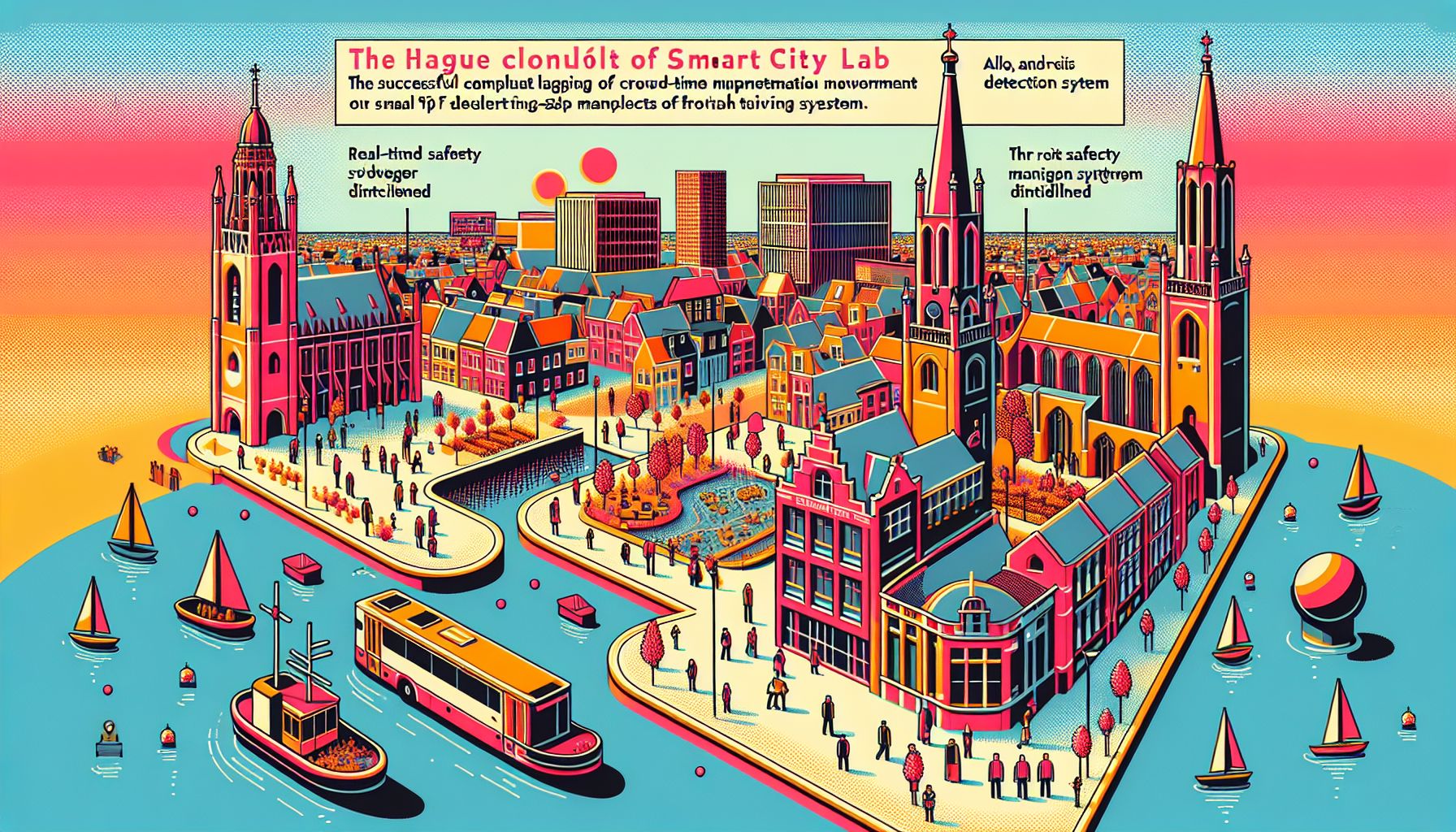The Hague's Smart City Lab: Five Years of Urban Innovation Success and Setbacks

The Hague, Tuesday, 19 November 2024.
The Hague’s Scheveningen Living Lab reveals groundbreaking results from its five-year smart city initiative. The standout success is the Crowd Safety Manager system, providing real-time 3D mapping of urban movement, while some projects, like riot detection, were discontinued. This real-world testing ground demonstrates how cities can practically implement and evaluate smart technologies, offering valuable lessons for urban innovation worldwide.
The Heart of Innovation: Scheveningen Living Lab
Located in The Hague, the Scheveningen Living Lab has been pivotal in testing and deploying smart city technologies since its inception. Over the last five years, this urban innovation hub has utilized an extensive fiber optic network to integrate sensors, cameras, and network equipment across various city infrastructures, including lampposts, kiosks, and charging stations. This connectivity has enabled the city to explore numerous technological advancements aimed at enhancing urban living and sustainability[1].
Celebrated Success: The Crowd Safety Manager
Among the successful implementations, the Crowd Safety Manager (CSM) stands out as a transformative tool in managing urban spaces. By providing real-time 3D maps, the CSM delivers critical insights into crowd dynamics to municipal employees, law enforcement, and event planners. This system’s effectiveness was notably demonstrated during the Invictus Games, where it helped manage visitor flow by advising alternative parking, thus preventing congestion and enhancing safety. Such innovations underscore the potential of technology to improve urban management significantly[1].
Innovative Trials and Valuable Lessons
While many technologies thrived, others faced challenges. A riot recognition system, for example, was discontinued due to insufficient operational success. Similarly, a smart camera designed to detect nitrous oxide use became redundant as the issue subsided. These experiences highlight the importance of adaptability in smart city projects, acknowledging that technology must meet current societal needs to be viable. The lessons learned from these trials are invaluable, offering guidance for future smart city endeavors[1].
Looking Ahead: Future Prospects and Challenges
As The Hague reflects on its achievements, the city is also aware of the challenges ahead. The dual water crisis, exacerbated by rising sea levels and reduced river water availability, poses a significant threat to the city’s sustainability efforts[5]. Deputy Mayor Robert van Asten emphasizes the urgent need for continued political commitment and innovative solutions to manage water resources effectively. This forward-thinking approach is crucial as The Hague continues to navigate the complexities of urban living in the face of climate change[5].
Global Implications and Knowledge Sharing
The insights gained from The Hague’s smart city initiatives have far-reaching implications. As cities worldwide grapple with similar urban challenges, The Hague’s experiences serve as a valuable resource. Events like the Smart City & Mobility Stage at GoTech World 2024 and the launch of the DeCiDE project at the Smart City Expo in Barcelona provide platforms for sharing these insights, fostering collaboration and innovation across borders[2][3]. By continuing to share knowledge and experiences, The Hague positions itself as a leader in smart city innovation and sustainable urban development[2][3].
Bronnen
- innovationorigins.com
- www.gotech.world
- globalparliamentofmayors.org
- telecominfraproject.com
- eurocities.eu

